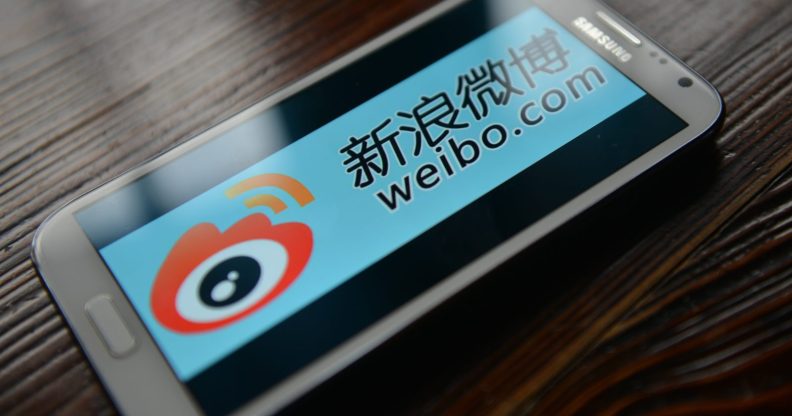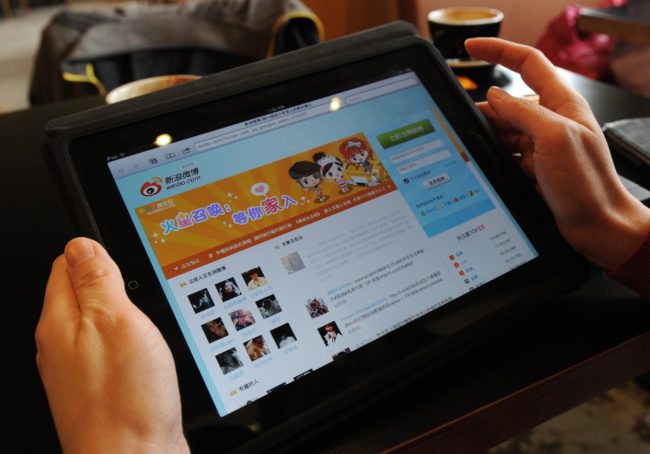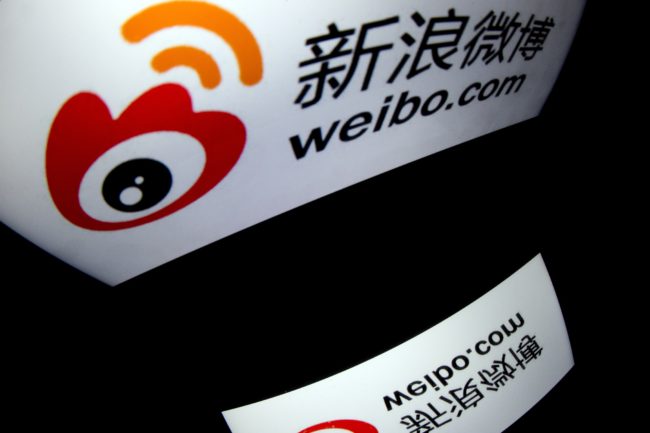Chinese social media giant Weibo backs down on ‘gay’ content ban after mass protest

(PETER PARKS/AFP/Getty Images)
Weibo, the Chinese equivalent of Twitter, has backed down from a plan to ban ‘gay’ content after a protest was seen by millions of users.
The microblogging platform announced new censorship rules to tackle content “with pornographic implications, promoting bloody violence, or related to homosexuality” on Friday.
It claimed the new rules were needed in order to “comply with the requirements of laws and regulations [and] fulfil the responsibilities of the company,” as well as to build a “happy community” on the platform.
The decision sparked unrest on the site, with users protesting by posting messages with the hashtag #IAmGay – which was trending within just a few hours.
In response to the outrage and threats of boycott from users, the social media giant now appears to have backed away from its hardline stance.

A woman views the Chinese social media website Weibo at a cafe in Beijing on April 2, 2012. (MARK RALSTON/AFP/Getty)
On Monday, the company abruptly announced that it would no longer clamp down on gay content.
It said: “The clean-up is no longer targeted at homosexual content, and is mainly to clean up the subjects related to pornography and violence. Thank you for your discussion and suggestions.”
The company’s announcement adds that its censorship will focus on “cartoons and videos that promote bloody violence” and “violent games with graphic content” such as Grand Theft Auto.
The decision to clamp down on ‘gay’ content had stoked fears of censorship of the LGBT community in China, which has already been under pressure for some time.
Weibo’s initial announcement received hundreds of thousands of comments and shares, with the majority criticising the decision to clamp down on gay content.

The Chinese app Weibo (LIONEL BONAVENTURE/AFP/Getty)
As of Friday, the site had removed 56,243 pieces of content, shut down 108 user accounts and removed 62 topics considered to have violated its standards.
China’s internet censors previously announced intentions to ban gay content from the internet.
The regulations, which block any portrayal of “abnormal” relations between two people of the same-sex, came into effect at the start of July 2017.
The country’s government previously attempted to ban portrayals of homosexuality on television.
A media watchdog said that “immoral, vulgar and unhealthy” portrayals of homosexuality were banned alongside smoking, drinking alcohol, suggestive clothing and the idea of reincarnation.
Despite ham-fisted attempts to censor the LGBT community online, China is fast becoming the centre of the gay hook-up world.
Chinese gay app Blued claims to be the largest gay social network app in the world, with more than 27 million users predominantly in China.
Meanwhile, Grindr was recently also acquired by a Chinese tech giant.

